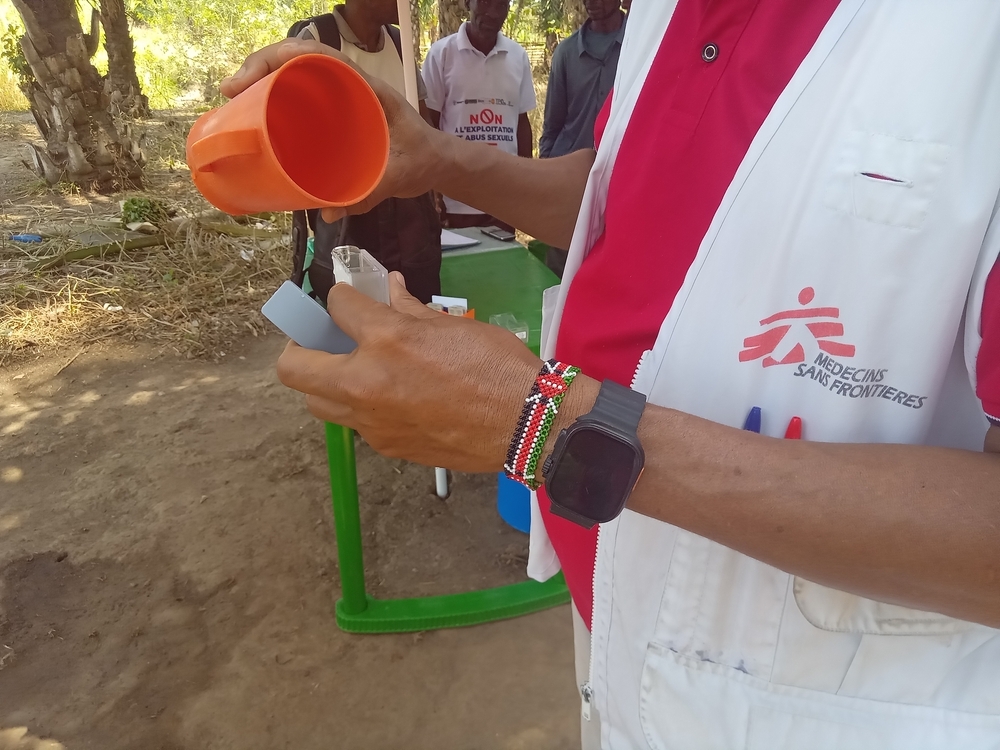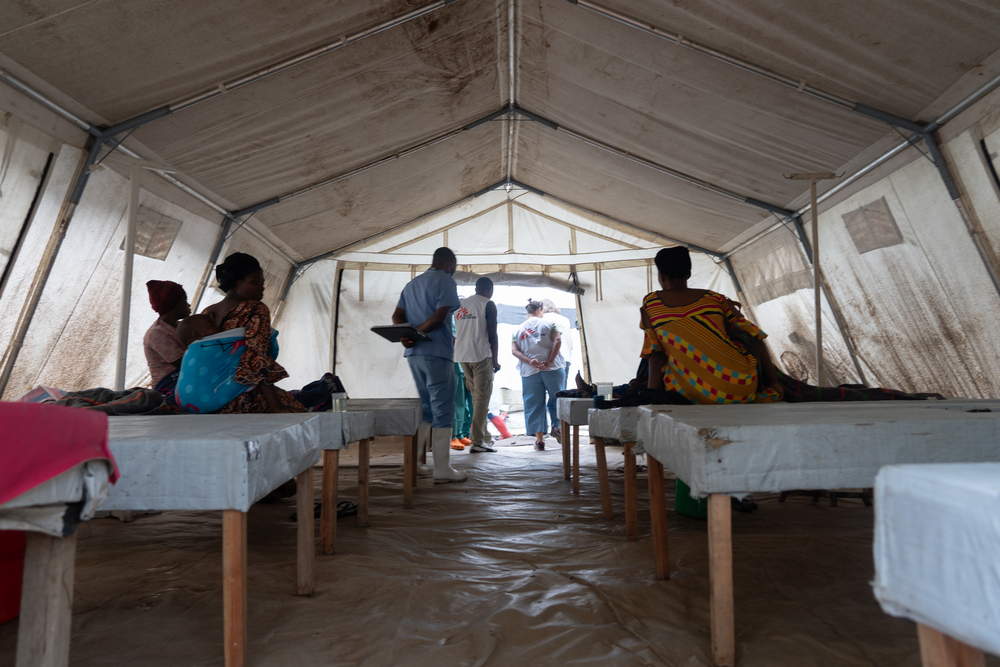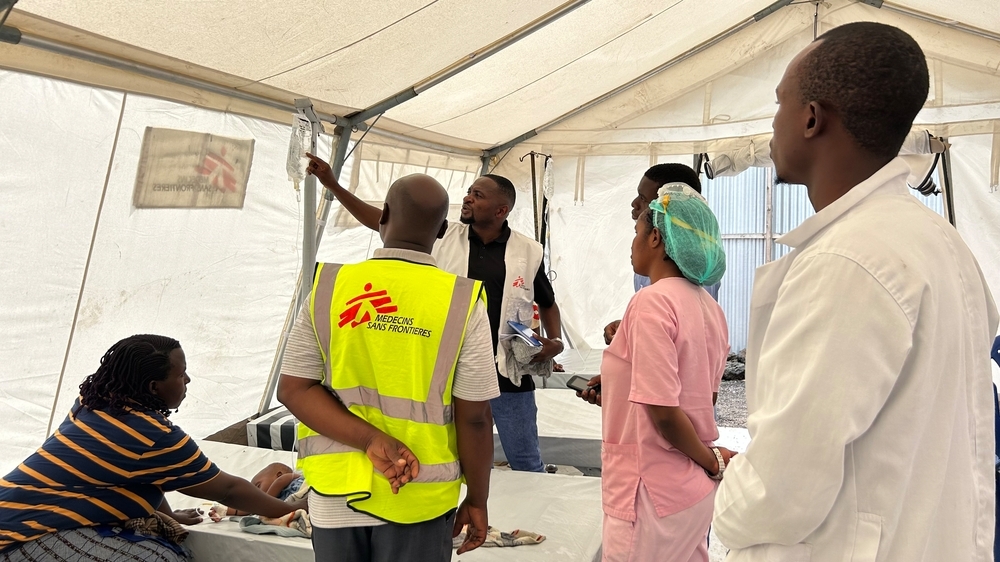Doctors Without Borders/Médecins Sans Frontières (MSF) is sounding the alarm on the intensifying cholera epidemic in Democratic Republic of Congo (DRC). In the past nine months, more than 58,000 suspected cases have already been recorded, according to data from the Ministry of health. The epidemic is among the worst seen in the last ten years, revealing the scale of the health crisis ravaging the country. Faced with this rapid spread, immediate and reinforced mobilization of national authorities, humanitarian agencies and international partners is essential to contain the spread of the disease.
Twenty of the country’s 26 provinces are now affected. From January to mid-October, more than 1,700 deaths have been recorded, with a fatality rate exceeding 3 per cent. The situation continues to worsen, spreading to new health zones, including provinces that were previously not endemic for cholera. Floods, conflicts, displacement as well as inadequate sanitation and water supply systems have contributed to fuelling widespread epidemics like cholera. As the rainy season approaches, the situation is likely to deteriorate, further increasing the risk of disease transmission and contamination.

In DRC, efforts are struggling to keep up
The cholera response faces major obstacles, including insufficient funding by the Congolese government, limited presence of humanitarian agencies and lack of coordination in the emergency response mechanism. At the same time, weak surveillance and case identification systems, a lack of medical personnel and supplies and limited vaccine distribution further compromise the implementation of a rapid, effective and sustainable response.
Cholera is a highly contagious bacterial infection. Although is treatable and preventable, without proper care it can quickly become fatal. Poor hygiene conditions, insufficient access to clean water and lack of sanitation can all contribute to the disease’s spread. This poses a particular challenge in densely populated areas, especially in large cities such as Kinshasa and in rural areas with high concentrations of people who are internally displaced.
MSF teams have had to step up their efforts to fill the gaps left by the weak emergency response mechanisms of the health authorities and other agencies. To slow the spread of the disease, MSF is supporting the Ministry of Health to deliver medical care in specialized treatment centres, training community health workers, setting up chlorination points, and strengthening water and sanitation systems.
“We call for coordinated and urgent action to ensure the rapid provision of medical care, including unimpeded access and sustainable investment in access to safe drinking water and sanitation,” says Berg.

Behind every intervention, access to healthcare is limited
While MSF teams race to respond to outbreaks, access to cholera patients is hampered by significant challenges: logistical difficulties, security risks, administrative barriers and supply issues. For example, the closure of Bukavu and Goma airports for months has hampered the main routes for transporting supplies to the east of the country.
In the Fizi health zone in South Kivu, the presence of humanitarian partners remains limited and virtually none are specifically involved in the cholera response.

“Persistent insecurity, marked by clashes between armed groups along the main roads, hinders movement and delays the delivery of assistance, forcing teams to make long detours to avoid risky areas,” says Berg.
Access to healthcare is also a huge challenge for communities. Long distances, lack of transport and security concerns make it difficult to reach medical facilities. Once there, these centres are often under-equipped and unable to meet people’s basic needs, leaving the communities most at-risk without essential care.
Cholera must be placed at the top of the national agenda as a major threat to public health in DRC. MSF calls for coordinated action to ensure the rapid provision of medical care, including the availability of vaccines, unhindered access and sustainable investment in access to safe drinking water and sanitation.
-
Related:
- Cholera
- Cholera outbreak
- conflict in DRC
- DRC
- MSF in DRC












